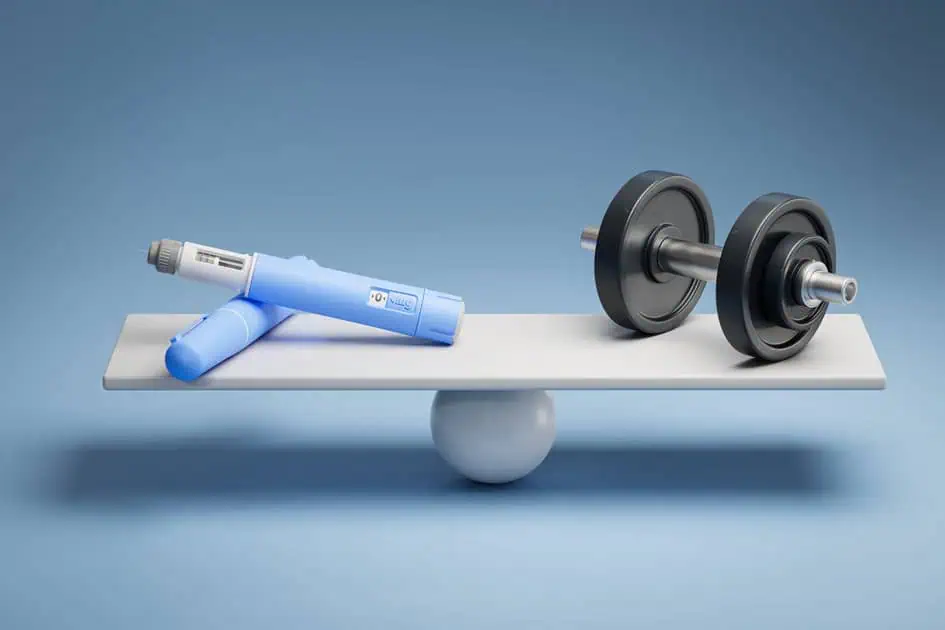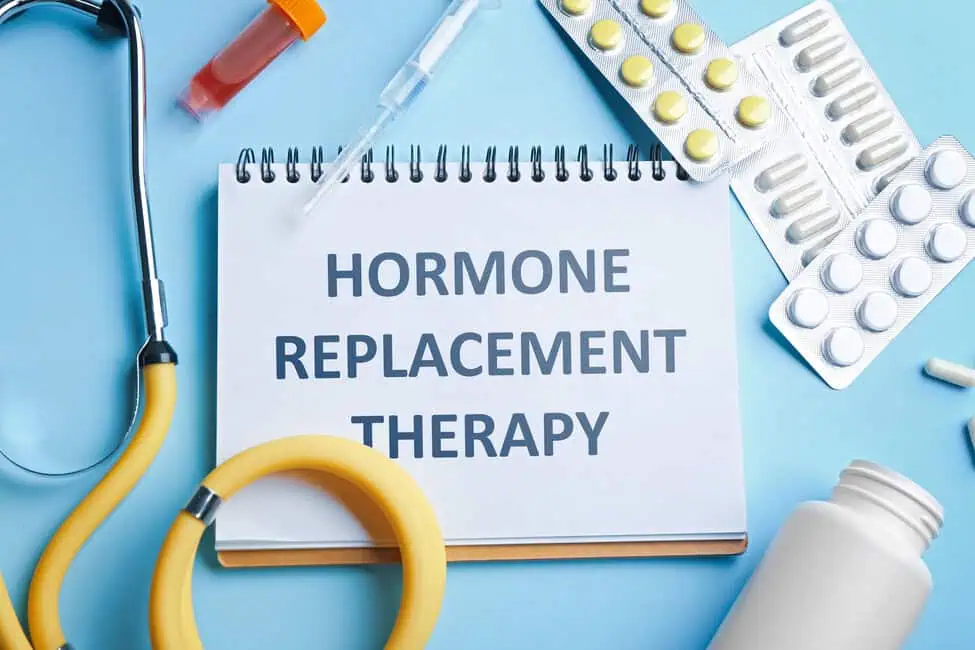Ah, hormones. Those beloved chemicals that can make or break how you physically, mentally, and emotionally feel. Hormone balance is vital to a healthy mind and body. Contrary to popular belief, hormone imbalance is not limited to women. Though many signs of hormone imbalance, such as menopausal and PMS symptoms, male pattern baldness, and erectile dysfunction to name a few, have become accepted and almost considered normal in modern society, these are actually indications that something is off and needs to be addressed. Understanding and addressing the cause of hormone imbalance allows us to treat and prevent it so that overall health can be rejuvenated.
What Are Hormones?
The brain controls the body through two main pathways: nerves and hormones. Nerves carry electrical impulses traveling up to 270mph to transmit a signal almost instantaneously. It is the equivalent of placing a phone call to reach a friend. Hormones on the other hand are chemical messengers. The endocrine system (hormonal system) is very vast and complex. In addition to the well-known hormones that will be discussed in this article, there are dozens of localized hormones that cells use to communicate with other cells within close proximity. Hormones are the equivalent of sending a snail letter to reach a friend. Think of the endocrine system like a symphony: if one instrument is out of tune it can throw the whole thing off. This article will discuss the major players, estrogen, progesterone, testosterone, cortisol, and insulin; what happens when they become out of tune, and how to restore balance again.
Symptoms of Hormone Imbalance
The symptoms of hormone imbalance can permeate virtually any body system depending on the primary hormones involved and the status of other health factors. Some common signs and symptoms are listed below, and are not gender specific unless otherwise noted.
Causes of Hormone Imbalance
Everything from blood sugar dysregulation and intestinal dysbiosis (imbalance of the bacteria in the intestines) to infection and chronic stress can cause hormone imbalance. Identifying the root cause rather than simply treating the symptoms is important for achieving and maintaining long-term balance. Below are a few of the most common contributing factors.
Chronic Stress
The Approximately 75-85% of all doctor office visits are due to issues around chronic stress. Since humans are adaptive creatures by nature, it often becomes difficult to identify exactly how much stress one is under until it is completely removed. In addition, the term “stress” does not only refer to emotional stress. There are actually three of stress: Physical, chemical, and emotional.
Physical Stress
Examples of physical stress include:
- Acute injury (sprain an ankle, break an arm)
- Traumatic brain injury
- Whiplash
- Scoliosis
- Disc degeneration
Chemical Stress
Examples of chemical stress include:
- Toxicity
- Infection
- Food sensitivities
- Blood sugar dysregulation
- Heavy metal toxicity
- Nutrient deficiencies
- Intestinal dysbiosis
Emotional Stress
Examples of emotional stress include:
- Traffic
- Deadlines
- Work
- Financial concerns
- Relationship issues
- Divorce
- Death of a loved one
Unfortunately, the body only has one stress response system, the “sympathetic” or “fight or flight” response, so any of the above will illicit the same hormonal cascade of events characterized by the release of adrenaline (in the short term) and cortisol (in the long-term) by the adrenal glands. These hormones are designed to help us escape immediate danger or fight off an infection, but then return to baseline once the threat is resolved. However, when there are multiple, practically endless stressors (who hasn’t been sick while raising children, juggling a 9-5 job and sleeping 5 hours per night?), these lifesaving stress hormones, particularly cortisol, start to become more destructive than helpful. Our bodies simply are not designed to withstand chronic stress. In today’s fast-paced environment, many people are burning the candle at both ends, and their hormones are suffering.
In anatomy and physiology, we were taught that the body will always choose survival over sex. In other words, when survival is perceivably threatened, our body shunts hormone production towards cortisol and away from the sex hormones, estrogen, progesterone, and testosterone. In functional medicine, this phenomenon is called “pregnenolone steal.” Pregnenolone is a precursor to both cortisol and the sex hormones, so under chronic stress, it is directed to make more cortisol at the expense of the sex hormones. As a result, sex hormone levels can plummet, resulting in many of the undesirable symptoms described above. Voila, hormone imbalance.
Menopause for women and andropause for men aggravate this issue. In the post-reproductive years, the hormone-producing baton is passed from the sex glands – the ovaries and testes – to the adrenal glands, the same glands responsible for producing the stress hormones. Often-times, because of the chronic stress load they’ve been carrying sometimes for years, the adrenal glands “burn out” or become “fatigued” (in true adrenal fatigue, they are unable to keep up with the stress demand and can no longer produce even the stress hormones), and drop the baton. This results in an onslaught of hormone-related symptoms classically associated with both menopause and andropause: weight gain, loss of libido, hot flashes and night sweats in women, loss of motivation and drive, mood swings, and more. In order for true hormone balance to be achieved, the stressors need to be evaluated and adrenal function restored.
Estrogen Dominance
Men, do not think this doesn’t apply to you! When it comes to hormone levels, too much or too little can be problematic. With estrogen, this is measured not only in its own right, but also in reference to its ratio to progesterone in women. In other words, estrogen levels may be normal, but if progesterone is suboptimal, signs and symptoms of imbalance occur. Similarly, if estrogen is high but progesterone is normal, similar imbalance occurs. In men, estrogen levels that exceed the optimal range create an onslaught of problems, including weight gain, muscle loss, gynecomastia (male breasts), increased emotional feelings, increased risk of heart disease, and more. All of these examples refer to a condition known as “estrogen dominance.” Symptoms of estrogen dominance include:
- Decreased sex drive
- Irregular or otherwise abnormal menstrual periods (women)
- Bloating (water retention)
- Breast swelling and tenderness (women)
- Fibrocystic breasts (women)
- Headaches
- Mood swings (most often irritability and depression)
- Weight and/or fat gain (particularly around the abdomen and hips)
- Cold hands and feet (a symptom of thyroid dysfunction)
- Hair loss
- Thyroid dysfunction
- Sluggish metabolism
- Foggy thinking, memory loss
- Fatigue
- Trouble sleeping/insomnia
- PMS (women)
Estrogen dominance has also been linked to allergies, autoimmune disorders, breast cancer, uterine cancer, infertility, ovarian cysts, and increased blood clotting, and is also associated with acceleration of the aging process. Symptoms of estrogen deficiency and excess, particularly in women, often overlap but treatment is completely different, making testing integral to resolving the issue. Many factors contribute to estrogen dominance, including anovulatory cycles in menstruating and peri menopausal women; excess body fat (body fat is an estrogen-producing machine); high stress which leads to high levels of cortisol, insulin, and estrogen; poor liver or kidney function; and exposure to environmental xenoestrogens, which are chemicals with a molecular structure very similar to estrogen, found in everything from plastic and receipt paper to car exhaust and pesticides on food. Estrogen dominance is extremely common in modernized societies in both men and women.
Low Testosterone
Just as men can experience imbalances with estrogen, both men and women can experience issues with suboptimal levels of testosterone. Testosterone is one of the body’s primary anabolic hormones, helping with tissue healing and repair, muscle synthesis, energy, drive, motivation, and sexual performance. Hormone production naturally declines with age, particularly past the age of 35. Between the ages of 45-55, most women and men enter “menopause” or “andropause,” respectively. a period of marked hormonal shifts. At this time, the sex organs (ovaries and testes) pass hormone production responsibilities to the adrenal glands. Healthy adrenal glands will pick up the baton and run, keeping hormones in appropriate levels (though still reduced as compared to young adult years). However, as discussed above, fatigued or stressed adrenals will drop the baton, and hormone production, including testosterone, goes down with it. If elevated estrogen is also a problem (very likely), symptoms are severely aggravated.
Solutions
As with many aspects in medicine, once the problem is identified, the solution becomes obvious. In the case of hormones, the root issue of the imbalance must be addressed for long-term balance to be achieved. Testing is imperative for this. Evaluating hormones as part of a complete blood work up is a great start. This will reveal not only hormone levels but other possible contributing factors to imbalance if imbalance is indeed identified. Once the issue is identified, a variety of natural approaches can be utilized to restore balance:
- Certain herbal remedies can be used to enhance your own production of hormones.
- Liver and intestinal detoxification can be particularly helpful in the case of hormone excesses.
- Hormone replacement therapy can also prove very useful in correcting hormone deficiencies, providing rapid relief of symptoms, and even prolonging longevity.
There is no one-size-fits-all approach in medicine, especially when talking about restoring hormone balance. At Grossman Wellness Center, we have wellness programs specifically designed to address these issues. These programs make your needed lab work, office visits, and hormonal replacement streamlined and effortless. Regular testing and check-in appointments with the doctor ensure you maintain balance and do not “slip through the cracks.” In addition, our highly skilled nutrition team is well versed in identifying and addressing the underlying causes of dysfunction and addressing them through a variety of dietary, lifestyle, and supplement factors. In other words, there’s a solution for everyone, and you will receive team-oriented medical treatment that far exceeds the standard of care.
Call Grossman Wellness Center today to see if hormone imbalance is contributing to your health concerns –
(303) 233-4247 or https://www.grossmanwellness.com/.





